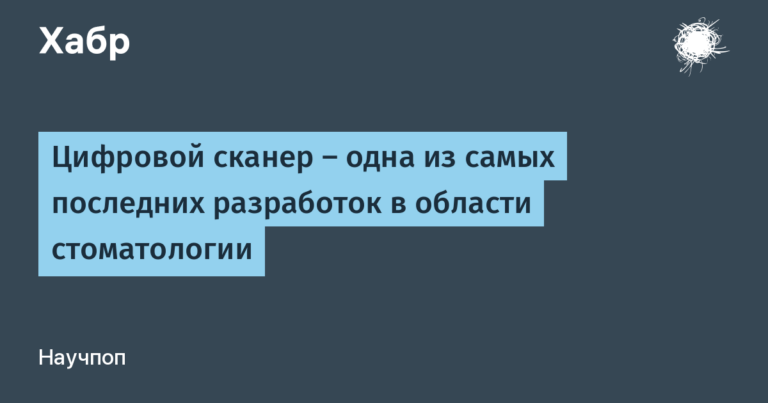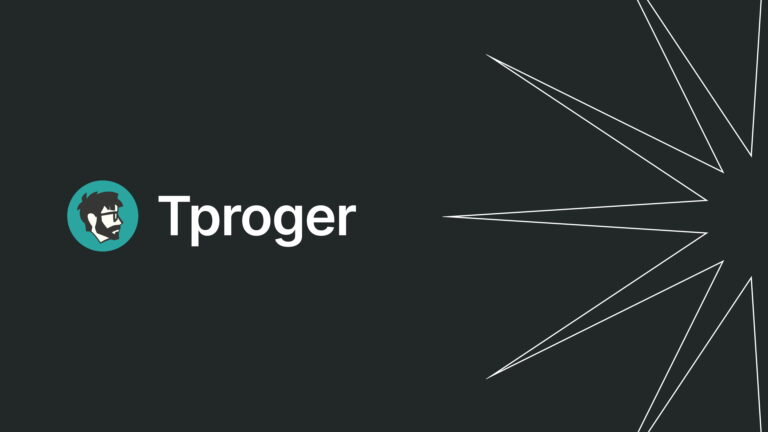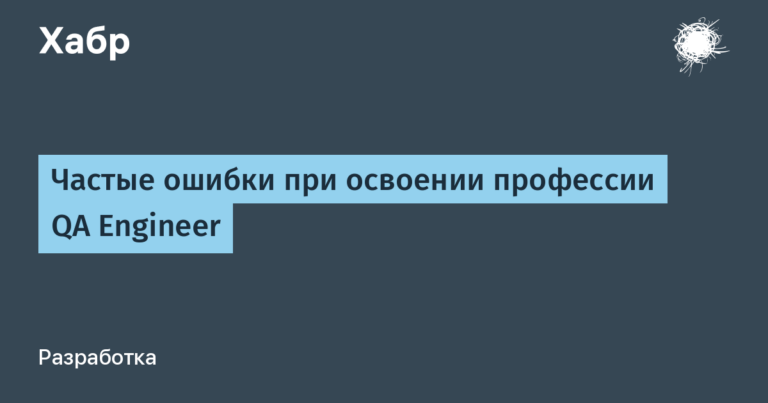How we at MTS AI assembled a team of researchers in less than a year
Own contact database
We try to stay in touch with promising candidates, even if something doesn’t work out with hiring, and we make up our reserve from them. Of course, we get upset as a human being if we can’t hire a talented specialist right away, but sometimes everything works out even better than we expected, even if we have to wait a little.
Here's another story.
One of our researchers initially came for an internship in the ML department. At that time we did not yet have a fundamental research group. It coped with its tasks so well that, as a result, several departments fought for it: both markup and NLP. But then we temporarily suspended recruitment for some vacancies, and we were unable to hire a girl. I was very sorry to lose such a promising employee. She found a job at another company, but we corresponded from time to time. Our future colleague asked if there were any vacancies and how things were going in general.
At this time, Sergey Zagoruiko came to MTS AI, we began to form the direction of fundamental research and select employees. I invited the candidate to an online meeting with the manager, she talked with Sergei Zagoruiko. Afterwards, she successfully passed the technical interview and accepted the offer.
Profile departments in universities
The shortest story will be about how we hired another researcher. She was recommended to us at the department of the Higher School of Economics – they sent her resume and contact information to Sergei Zagoruiko in a personal message with the words: “smart girl, look.” As a result, we hired her first of all the researchers. Our employees work at the National Research University Higher School of Economics, ITMO, MEPhI, Skoltech and other universities, but we do not consider it correct to practice when a company hires the entire course. Thus, the system of personnel training and knowledge transfer breaks down.
Personal initiative
“How did you manage to snag him?” colleagues from other companies wrote to me with envy about one of our researchers, “he’s just a star.”
I admit honestly: no magic, no promises of mountains of gold and everything else. He came to us himself. Having learned about Sergei Zagoruiko, his projects and research, and his current place of work at MTS AI, our future colleague emailed him with an offer to talk. They phoned, after which our future employee went to think about the offer. And he quickly came to work for us.
An exception
I would like to tell this story separately – it surprised us so much. There is one guy working with us – a real talent, or as they used to say, a nugget.
The resume contained only personal projects, a lot of information about courses taken and self-study, but nothing was said about research experience. Nevertheless, we decided to consider his candidacy. He graduated from Baumanka, returned to his hometown, got a job at the plant as a process engineer and worked there for 13 years. At the same time, for the last three years I have been studying machine learning in my free time, taking up freelance work, and doing my own projects. At the technical interview, the guys barely understood him – he used his own terminology, since he mastered ML on his own. But… he completed the test task brilliantly, which greatly surprised his future colleagues. At the end, one of them said: “If he figured everything out like that, imagine how great he can grow in our team.” In the end, we hired a guy, he works – everyone is happy with him.
How our research department works now
During the year of its existence, the fundamental research direction created a large language model, MTS AI Chat, aimed at corporate customers, and it was included in the TOP 3 Russian-language LLMs according to the MERA benchmark. The guys also prepared three articles for international conferences. In addition, one of our employees took gold in the Google Image Challenge and took three prizes in competitions as part of the AI Journey.
Not a bad result, isn't it? Now I propose to give the floor to my colleagues. They themselves will tell you what tasks they do at MTS AI, how their work is structured, and most importantly, why they chose us instead of large companies.
Sergey Zagoruiko, head of fundamental researchers at MTS AI
What principles guide your team’s work?
Academic freedom is one of the main principles of my team’s work. I got it in the laboratory Jana Le Cun – Professor at New York University and leading AI researcher at Facebook AI Research (owned by Meta – recognized as an extremist organization in the Russian Federation). It is important for me that people are proactive – they come up with ideas themselves, conduct experiments and are not afraid to do what is not asked of them.
What company would you never work for?
I work very poorly when people constantly tell me what to do without my opinion being taken into account. What I like about MTS AI is that I can make decisions that influence the development of products and projects. Moreover, we have a high level of trust in our leaders. We can go to top managers at any time and say, I think this is what needs to be done, and our opinion will be heard. What is also important: comfort of communication and a pleasant atmosphere.
Valentin Malykh, head of NLP research at MTS AI
At one of the conferences we were asked: do you really have researchers of this level, how did you manage to attract them? The author of the question lived with stereotypes – a researcher, like an artist, must be hungry, sit somewhere, study something, how can he go to a company? How would you answer this question?
Perhaps this was once the case, and somewhere it still is. Under the Soviet Union, the state was the main customer of research. And accordingly, he financed this business as he saw fit. Now business has joined in sponsoring research. Companies give money to projects that are useful to the business. Therefore, if your interests coincide with corporate ones, then you get a job and get a good salary, all sorts of goodies, bonuses and also develop as a researcher, in my opinion this is a win-win situation. Everyone is happy, there is no contradiction. There is only one point: the interests of the employee and the company do not always coincide. In general, I consider myself lucky: now I have the opportunity to engage in activities that interest me and still receive good money for it.
But as for why I went to MTS AI? I can answer very easily. I followed Sergei because Sergei is cool. He has 24,000 scientific article citations. As soon as I found out about him, I decided that I wanted to at least get to know the person. Well, then word by word…
In addition, while working at MTS AI, I have the opportunity to engage in teaching activities. I believe that I must pass on knowledge further so that our field develops, students receive up-to-date knowledge, and this chain should not be interrupted. Once during an interview I was asked a question: if we don’t allow you to teach during working hours, what will you do? I said, I will teach after hours because it needs to be done anyway. That company respected my position, but I still didn’t go to work for them, so I couldn’t test their attitude in practice. And here, in general, no conflicts arise; on the contrary, teaching activities are encouraged, so in general, in this sense, I am very grateful to MTS AI.
Tell us how work in fundamental research works now?
In our department, some of the guys work on computer vision, and some work on large language models. There is a team that focuses on creating a code completion system. We also work with prompt engineers and AI trainers. In general, our projects are structured as follows: we receive a general and global task from managers, or we propose an idea ourselves. Next, we detail it to more or less understandable and operable things and delegate them to someone from the team. Then the employee goes to complete it himself. If he has questions, we get together and discuss them. The person responsible for this task himself formulates a hypothesis, conducts experiments and sums up their results. Based on the results of the experiments, either Sergey or I decide how to proceed: stop the research or formulate a new hypothesis. The output is new technology: code or a trained model, as well as written reports. This is what we produce accordingly.
What would you recommend to those who want to try their hand at basic research?
Of course, I cannot help but be pleased that many companies have now begun to engage in science and hire employees with relevant competencies. When I started, there was, unfortunately, no such variety of vacancies. However, I think you should not go for an interview at MTS AI, AIRI or any big company right away because it may be difficult to clear without experience. The easiest place to start is to find a scientific project at your university that is relevant to your interests. As a rule, there are not enough people on all university projects. You can take on the simplest work: checking data, writing basic code. With a successful combination of circumstances, in six months you will be able to understand how everything works and how suitable it is for you. This is pretty much how I started myself.
Taking this opportunity, I would like to say hello to Vladimir Ivanov – now he is the director of the Institute of Software Development and Software Engineering at Innopolis University, that is, a very big man, and in 2015 he was the head of the laboratory at KFU. I met him at a hackathon in Kazan, and he offered to collaborate with me, for which I thank him very much. I tried to do something for science, but to be honest, it didn’t work out very well. However, this only fueled my interest in research, and I began to develop in this area.
Georgy Gaikov, senior research developer at MTS AI
What do you do at MTS AI?
I have 2 main tasks now. Firstly, in our team I am responsible for everything related to smart assistants; when we don’t have enough models, we want to connect it to some knowledge bases. Secondly, I am involved in smart video analytics – this is something I have been working with for a long time. Now video analytics is designed in such a way that, roughly speaking, each system is tailored to some narrow function, for example, facial recognition or license plate recognition. I make sure that there are no narrow functions, so that the functions are broad. Then the person who buys such a system will be able to configure it himself in the same way as we communicate with a smart speaker. It would be possible to tell the system: send me an SMS when a woman in a red coat with a child appears in the frame, say his wife and son. And when they appear in the frame, the person will receive an SMS that his wife has come home, and he will know that such an event has happened.
What projects would you like to do?
Yes, I have ideas, I just don’t have time for them yet. I'd like to test a couple of hypotheses in the field of generative neural networks. I think that such a check would most likely yield a good article. I hope that time will eventually free up and I will try to do this.
Tell us how you got a job at MTS AI?
I worked for a very large company for several years. Coincidentally, at the very moment when I decided to move on, HR from MTS AI wrote to me. I had never heard anything about MTS AI before. I knew about Sberbank, Yandex, Tinkoff, VK, but I thought, why not go for an interview. At that moment, I decided to come to the interview for the sake of the interview itself – to see what tricky questions they would ask in order to be aware of the latest requirements for AI specialists. But it turned out a little differently. I met the future leader, he liked me, and I liked him. They made me a good offer. Then I decided not to stay in my previous company and moved to MTS AI. It soon became clear that this was the right decision: there is a wonderful work-life balance, interesting tasks, talented colleagues, many free corporate services and even a developed dog-friendly culture – we regularly bring our four-legged friends to the office. Another positive point is that the company is not too small and not too big. This allows you to be in close contact with everyone – including colleagues who communicate with customers. That is, after a maximum of one handshake, everyone knows each other. And this is much more effective than in large companies. There are sometimes such large chains that its different elements work in opposite directions.
Darina Rustamova, research developer at MTS AI
What tasks are you working on this quarter, in the last six months?
Now I'm training models and improving our datasets. Somehow it turned out that I am better able to communicate with the markup group, explain to them what we generally need, and come up with methods. And so I’m thinking about how best to collect and mark up a dataset, how to evaluate a model on a specific dataset. In addition, I work with devops, explain what we need, and set optimization tasks. If I didn’t train the models myself, I wouldn’t be able to tell my colleagues what exactly my team wants and in what form. So one does not exist without the other.
What was the most memorable task you had during your entire career?
This was at the beginning, when I first arrived. Previously, I had not particularly had to deal with training large language models, but at that moment FRED-T5 from Sber came out, and I decided to test it. I wrote code for training, and everything seemed to work out for me. This was my small victory – at that time it was a difficult task for me. At the same time, no one told me: here is the model, here is the dataset. Teach. I found her myself and decided to teach her myself. Based on it, we made a bot for communicating on free topics, which we then tested within the team.
How were your tasks structured at the very beginning of your work?
The first months were difficult for me because I expected managers to tell me what to do and for me to do it. But then Sergei told me that it is not necessary to consult with me. If you think this is a cool model and working with it won’t take you a lot of time and resources, just go ahead and do it. There is no need to ask me for permission or wait for me to offer it myself. This kind of freedom gave me a great result.
Ksenia Titova, research developer at MTS AI
What are you currently doing with your team?
In general, what I do is improve our LLMs and conduct experiments – from searching for new high-quality data and benchmarks to trying to apply ideas from recent scientific papers to our models. Speaking about what we are doing specifically now – we are writing our scientific articles at the conference.
How do you build relationships in your team?
I think that the relationships in my team can be described not as relationships between colleagues in a work team, but as in a club of interests. Often, if someone finds an interesting article, we discuss everything together in our chat and admire it.
Why did you decide to accept the offer and go to work at MTS AI?
The first reason is the leader, Sergey, I heard about him even before I came to MTS AI. He is a very cool specialist, we had a great conversation at the interview, and I realized that it was pleasant and not scary to work with him. The second reason is research tasks; this has always attracted me. Essentially, I’m doing the same thing I did at university, only now I’m also getting paid for it.
Ammar Ali, Senior Research Developer, MTS AI
Tell us, what tasks are you working on now?
I am currently working on various projects. We have developed a system for the full cycle of object and association detection. We managed to achieve state-of-the-art results in the association aspect with a significant improvement compared to previous work. In addition, my team and I are working on chatbots and exploring ways to improve our model.
I like our projects: they are both simple and complex, and most importantly, I learned a lot during my time at MTS AI, and I am sure that I will learn even more, since I am just starting my professional journey.
Bottom line
So, you've learned more about who ML researchers are: guys who not only write code, but also run experiments, test hypotheses, and prepare papers for scientific conferences. If you are my/my colleague's HR manager, then now you know a little more about how to assemble a team of specialists in the field of basic research. If you are a developer, then this information will help you understand whether this type of work is right for you, and perhaps discover a new field of activity.
Write in the comments – have you tried your hand at science and what came of it?




